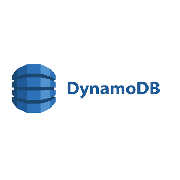| Amazon Adds SQL Support To DynamoDB |
| Written by Kay Ewbank |
| Monday, 21 December 2020 |
|
Amazon has added support for PartiQL to DynamoDB, meaning users can now create queries using SQL to run against DynamoDB. DynamoDB is a managed NoSQL database that can be used for both document and key-value data storage. Amazon says some DynamoDB customers are storing more than 100 terabytes in a single DynamoDB table and making millions of read or write requests per second. The Amazon retail site relies on DynamoDB and uses it to withstand the traffic surges associated with brief, high-intensity events such as Black Friday and Cyber Monday.
PartiQL is a SQL compatible query language designed by Amazon to let you query data no matter what database it's stored in. So long as a query engine supports PartiQL, you can process structured data from relational databases (both transactional and analytical), semi-structured and nested data in open data formats (such as an Amazon S3 data lake), and schema-less data in NoSQL or document databases that allow different attributes for different rows. The PartiQL support means DynamoDB users can choose it instead of DynamoDB's other query options to query, insert, update, and delete table data in Amazon DynamoDB. Amazon says PartiQL makes it easier to interact with DynamoDB and run queries in the AWS Management Console: "Because PartiQL is supported for all DynamoDB data-plane operations, it can help improve the productivity of developers by enabling them to use a familiar, structured query language to perform these operations." Until now, users could either use DynamoDB's Query operator to find items based on primary key values, or use QuickSight, Amazon's business intelligence service. PartiQL was open sourced by Amazon last year, having been developed by Amazon to handle Amazon’s own needs to query and transform vast amounts and varieties of data – not just SQL tabular data, but also nested and semi-structured data. PartiQL provides strict SQL compatibility, achieves nested and semi-structured processing with minimal extensions, treats nested data as a first-class citizen, allows optional schema, and is independent of physical formats and data stores.
More InformationRelated ArticlesScylla Adds DynamoDB-Compatible API Amazon DynamoDB Accelerator Reaches Preview iOs and Android AWS Support for DynamoDB To be informed about new articles on I Programmer, sign up for our weekly newsletter, subscribe to the RSS feed and follow us on Twitter, Facebook or Linkedin.
Comments
or email your comment to: comments@i-programmer.info |


